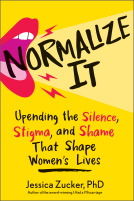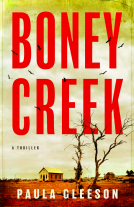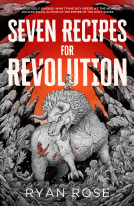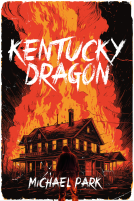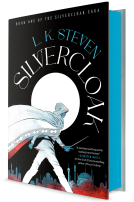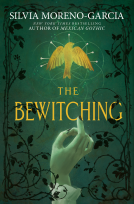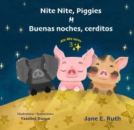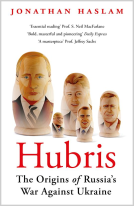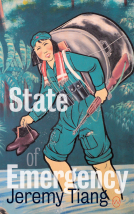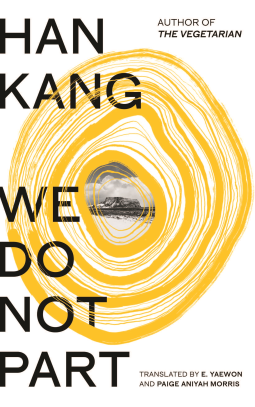
We Do Not Part
by Han Kang
This title was previously available on NetGalley and is now archived.
Send NetGalley books directly to your Kindle or Kindle app
1
To read on a Kindle or Kindle app, please add kindle@netgalley.com as an approved email address to receive files in your Amazon account. Click here for step-by-step instructions.
2
Also find your Kindle email address within your Amazon account, and enter it here.
Pub Date Feb 06 2025 | Archive Date Feb 19 2025
Talking about this book? Use #WeDoNotPart #NetGalley. More hashtag tips!
Description
WINNER OF THE NOBEL PRIZE IN LITERATURE 2024
Like a long winter’s dream, this haunting and visionary new novel from 2024 Nobel Prize winner Han Kang takes us on a journey from contemporary South Korea into its painful history
‘One of the most profound and skilled writers working on the contemporary world stage’ Deborah Levy
Beginning one morning in December, We Do Not Part traces the path of Kyungha as she travels from the city of Seoul into the forests of Jeju Island, to the home of her old friend Inseon. Hospitalized following an accident, Inseon has begged Kyungha to hasten there to feed her beloved pet bird, who will otherwise die.
Kyungha takes the first plane to Jeju, but a snowstorm hits the island the moment she arrives, plunging her into a world of white. Beset by icy wind and snow squalls, she wonders if she will arrive in time to save the bird – or even survive the terrible cold which envelops her with every step. As night falls, she struggles her way to Inseon’s house, unaware as yet of the descent into darkness which awaits her.
There, the long-buried story of Inseon’s family surges into light, in dreams and memories passed from mother to daughter, and in a painstakingly assembled archive documenting a terrible massacre on the island seventy years before.
We Do Not Part is a hymn to friendship, a eulogy to the imagination and above all an indictment against forgetting.
Translated by e. yaewon and Paige Aniyah Morris
‘A vital voice and a writer of extraordinary humanity. Her work is a gift to us all’ Max Porter
‘A remarkable novelist who reflects our modern condition with courage, imagination, and keen intelligence’ Min Jin Lee
Available Editions
| EDITION | Other Format |
| ISBN | 9780241600269 |
| PRICE | £18.99 (GBP) |
| PAGES | 240 |
Available on NetGalley
Featured Reviews
We Do Not Part is a haunting and beautifully crafted narrative that intertwines the themes of friendship, memory, and trauma. When Kyungha receives an urgent message from her friend Inseon, who has been hospitalised after a serious accident, she rushes to Jeju Island to care for Inseon’s pet bird. This journey, however, is not merely a physical one; it becomes a profound exploration of the past and the weight of history that lingers in the present.
As Kyungha battles a fierce snowstorm to reach Inseon’s home, the icy wind and swirling snow serve as metaphors for the emotional coldness and isolation that permeate their lives. Once she arrives, Kyungha uncovers the dark family history that Inseon has long kept buried. Through dreams, memories, and meticulously assembled archives, the narrative unravels a tragic massacre that haunts the island—a poignant reminder of the scars left by historical atrocities.
The writing is lyrical and evocative, transporting readers into the heart of a winter landscape that mirrors the characters' emotional journeys. The friendship between Kyungha and Inseon is tenderly portrayed, underscoring the importance of connection in the face of overwhelming darkness.
We Do Not Part serves as both a tribute to the power of imagination and a call to remember the past rather than bury it. The story resonates deeply, reminding us that the echoes of history still shape our lives today. This is more than just a novel; it is a powerful exploration of memory and the enduring bonds of friendship that can illuminate even the darkest paths.
Read more at The Secret Bookreview.
What Han does in this book is articulate a harrowing story but to express it through a delicately lucid and austere prose. Strikingly, she allows this novel to take on the allusive techniques more usually found in poetry, and shows herself (again) as an exquisite craftsperson of this dense and sophisticated mode of storytelling.
The explicit story is an excavation of the Jeju 4.3 massacre of 1948 in South Korea and the trauma that has ensued on both a personal and national level. The story thematises issue of suffering, intergenerational pain and the unending nature of loss and absence, and attempts towards memorialisation as both a move towards some kind of partial healing as well as acknowledgement of history and the way the past always has a presence in our present.
But what really raises this book in my personal pantheon, is the craft. Han uses metaphors and symbolism to great effect without overloading the text. Snow, birds, trees contain a multiplicity of meanings, some of which also perform as intertexts to Han's other works. Strikingly, they also have shifting values: snow is white and pure and peaceful, even as it is a potential giveaway of a father and daughter's footsteps as they try to find refuge in a cave from the militias seeking their death. It acts as a symbol for the covering over of inconvenient history that governments seek to eradicate from memory; and it figures disappearance as material flakes hit the damp ground and dissolve, representing the absence of family relations and executed bodies thrown into the sea to be swept away. It is especially powerful as a figure for reiteration: the natural cycle of snow-water-mist and the way that reflects humanity's inability to get past violence, war and struggle: 'Who's to say the snow dusting my hands now isn't the same snow that had gathered on their faces?' This sense of haunting, of the intersection of time, is one which permeates the book.
The other system of imagery which worked so well for me is that of bloody fingers: Inseon cuts off her fingertips when working on an art installation as memorialisation piece; in the hospital a nurse has to stick needles into her open wounds in order to keep the nerves alive. But this also recalls moments of torture and also instances of love and desperation: Inseon's mother cut her own fingers to drop warm blood into her dying sister in an attempt to keep her alive, and would prick Inseon's finger with a needle and rub her belly when she had disturbed nightmares. These sorts of dualities of imagery give a gorgeous coherence to the book on a sub-textual level and involve the reader in the hermeneutics of the text.
The title, We Do Not Part in English, is both the title of the art project being contemplated within the story as a monument to the massacre but also refers to the way in which human connections endure: at the heart of the narrative is the friendship of the two women, Kyungha and Inseon, who tell this story as alternate voices with Kyungha as main narrator and Inseon as inserts, but there is also the implication of the lasting remembrance of the executed who do not disappear from personal or collective memories - and the book itself is, on one level an act of artistic recollection and memorialisation. While the immediate concern is with a specific incident in the history of Korea, there is a sense that Han is also thinking more widely of other histories of mass executions, atrocities and, possibly, genocide. Like Sebald, she widens the margins of her story to take a view on humanity's inescapable, apparently, inhumaneness - but does this through a consummate artistry that offers some kind of hope or, at least, doesn't end in complete despair.
I received an ARC of this (thank you, Penguin and Netgalley!) just days before Han was awarded the 2024 Nobel Prize for Literature and this is a fine book to introduce her to potentially new audiences.
Readers who liked this book also liked:
Sheryl Lisa Finn, MA; Sheryl Paul
Health, Mind & Body, Science, Self-Help
Kelly and Kristina Mancaruso
General Fiction (Adult), Mystery & Thrillers, Nonfiction (Adult)
